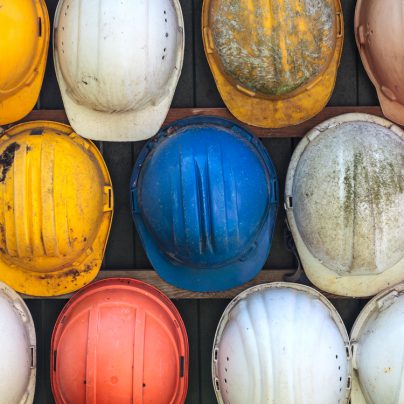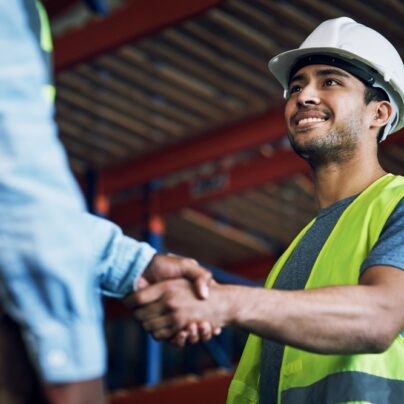 It seems very much as though at the moment the subject of gas is in the air (pardon the pun), and so today I thought I’d take a quick look at what’s been happening and offer a few health and safety pointers.
It seems very much as though at the moment the subject of gas is in the air (pardon the pun), and so today I thought I’d take a quick look at what’s been happening and offer a few health and safety pointers.
Last week I mentioned about the gas leak alert in Liverpool which resulted in a fine of nearly £40,000. Fortunately no one was hurt, but it did highlight how very easily it is possible to overlook something as significant as this if you take your eye off the (wrecking) ball for just a moment.
Gas Explosion Destroys Devon Property
Another story in the news this week highlighted just how significant a gas leak can be . A college lecturer on holiday in Greece received the sort of phone call which is guaranteed to spoil a holiday. The police called her to tell her that her house had blown up.
It seems as though either a gas appliance was accidentally left on, or that an as yet unexplained gas leak caused a gradual build up of gas over the period of time the lecturer was away. The gas eventually exploded with such force that the house has been utterly destroyed, with nothing left at all except a pile of rubble that’s a hundred yards across.
It is fortunate the house was detached as gas leaks which cause explosions can very often take out several properties on either side in built up areas.
CO – A Quiet But Deadly Killer
But of course whilst it is easy to dwell on the obvious danger of a gas build up, with explosions very often making the news headlines, gas can cause another very serious safety hazard, but one which is silent and invisible, yet just as deadly.
Carbon monoxide is often called the silent killer, and in any residential property it is vital to have regular gas safety checks carried out to make sure that boilers and fires are properly ventilated. Poor or inadequate ventilation of fumes can easily result in a gradual build up of carbon monoxide in a room, and all without anyone being aware.
Carbon Monoxide is odourless and colourless, which means that it’s not likely to wake you up if you’re asleep. Even if you’re awake all you’ll notice is that you feel groggy, have a bit of a headache and feel tired. If you fall asleep, you won’t ever wake up again.
For those people living in rented accommodation a good deal of reassurance can be gained from the legally required gas safety checks which a landlord must have carried out each year. These can only be carried out by approved gas safety experts, and amongst the various safety checks which are carried out is a careful analysis of the ventilation to ensure that there is no risk of carbon monoxide building up.
Gas Safety Failings
Unfortunately for one other Devon family no such reassurance was forthcoming. Despite having had three gas safety engineers visit their rented property to carry out gas safety checks, none of them identified the fact that there was a build up of gas due to faulty ventilation.
One might imagine that the news story ends with the tragic and untimely death of one or more of the family, but fortunately in this particular case no one suffered any long term harm. However, they were all very ill, and could easily have succumbed to the fumes had they not realised that something was wrong.
The HSE carried out an independent investigation and found the gas safety engineer responsible for the most recent check to be in breach of the Gas Safety (Installation and Use) Regulations 1998, as well as a breach of the Health and Safety at Work Act 1974. He was fined £750 and ordered to pay costs of £734.
Gas Safety Advice From The HSE
The HSE has published a good guide to gas safety in the home which you can read here: http://www.hse.gov.uk/gas/domestic.
 Additionally if you are concerned about the gas safety engineer responsible for carrying out checks in your home then you can verify that they really are qualified and approved for this work by either visiting http://www.gassaferegister.co.uk and entering the engineer’s licence number (found on their ID card). Genuine engineers will not mind you carrying out this check, but if your gas engineer does have a problem with being verified then this should be the first cause of concern. You can also call the Gas Safety Register on 0800 408 5500.
Additionally if you are concerned about the gas safety engineer responsible for carrying out checks in your home then you can verify that they really are qualified and approved for this work by either visiting http://www.gassaferegister.co.uk and entering the engineer’s licence number (found on their ID card). Genuine engineers will not mind you carrying out this check, but if your gas engineer does have a problem with being verified then this should be the first cause of concern. You can also call the Gas Safety Register on 0800 408 5500.

A chartered (fellow) safety and risk management practitioner with 20+ years of experience. David provides a healthy dose of how-to articles, advice and guidance to make compliance easier for construction professionals, Architects and the built environment. Get social with David on Twitter and Linkedin.





2 Comments
[…] An update on the Gas Safety Register for Domestic properties by Veritas Consulting safety Services […]
[…] An update on the Gas Safety Register for Domestic properties by Veritas Consulting safety Services […]